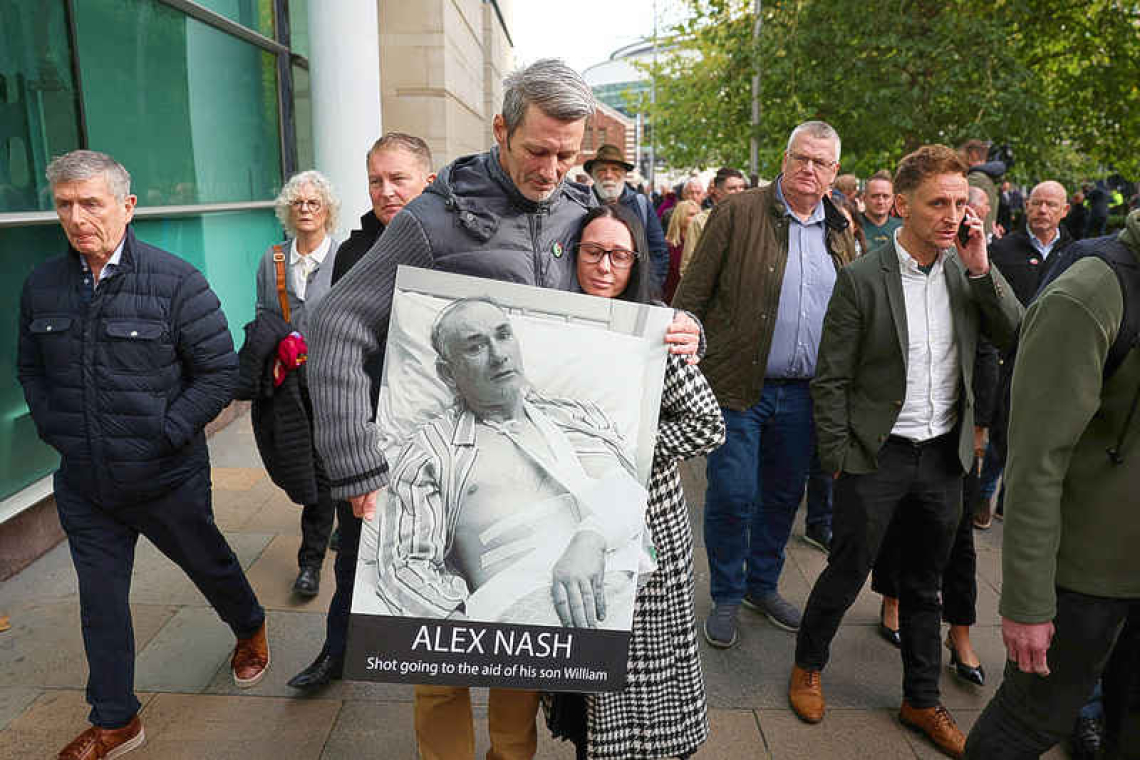BELFAST--A Belfast court on Thursday found a British soldier not guilty of murder in the only trial of a member of the British armed forces over the 1972 "Bloody Sunday" killings of 13 unarmed Catholic civil rights marchers in Northern Ireland.
The British government in 2010 apologised for the "unjustified and unjustifiable" killings, when members of the British army's elite Parachute Regiment opened fire in the mainly Irish nationalist city of Londonderry in one of the defining moments of Northern Ireland's recent history. But all efforts to prosecute soldiers have failed and many relatives of victims and their supporters now believe the chance of a successful prosecution of British armed forces is remote.
Belfast Crown Court was silent when the verdict was read. The soldier, who cannot be identified legally and is known as Soldier F, was in court but hidden behind a blue curtain to protect his identity. He was found not guilty of killing two men and trying to kill five others.
Judge Patrick Lynch said in his verdict that he was satisfied that soldiers had lost all sense of military discipline and opened fire with intent to kill and that "those responsible should hang their heads in shame."
But he said the case fell short of the burden of proof. "Delay has, in my view, seriously hampered the capacity of the defence to test the veracity and accuracy of the hearsay statements," he said."The evidence presented by the Crown … signally fails to reach the high standard of proof required in a criminal case; that of proof beyond a reasonable doubt."
Mickey McKinney, brother of William McKinney, one of the two victims named in the case, said he put the blame for the failure to successfully prosecute any soldiers squarely with the British state. "Soldier F has been discharged from the defendant’s criminal dock, but it is one million miles away from being an honourable discharge," McKinney told journalists outside the court.
Bloody Sunday became one of the defining events of the Troubles, three decades of sectarian violence involving nationalists seeking a united Ireland, unionists wanting Northern Ireland to remain a province of the United Kingdom, and British forces.The shootings fuelled suspicion of the authorities among the Catholic minority and prompted dozens to join the Irish Republican Army's violent campaign against British rule.
Thirteen people, all unarmed Catholics, were killed when the soldiers opened fire in the staunchly nationalist Bogside area of Londonderry on January 30, 1972. A 14th victim later died from wounds sustained on the day. The troops said they shot at people armed with guns or nail bombs.A 1998 peace deal largely ended the bloodshed.
Soldier F was not called to give evidence during the one-month trial that was heard without a jury.Defence lawyers did not call any witnesses and said that the core of the case, military statements taken over 50 years ago, were manifestly unreliable, with no independent supporting evidence offered to back the prosecution case.







